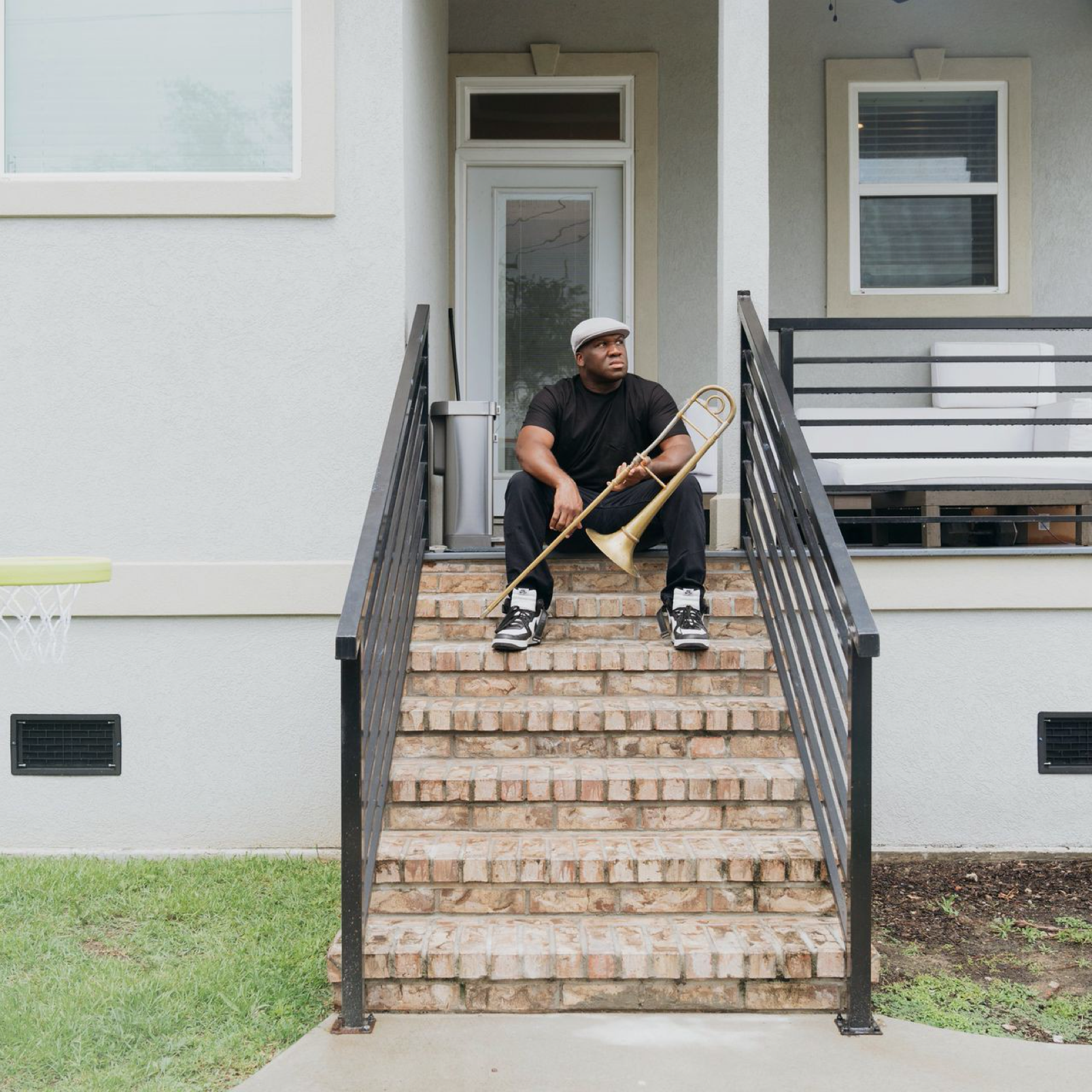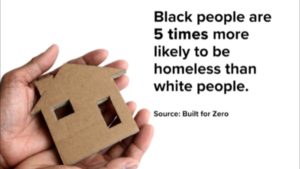The pandemic is disproportionately harming U.S. black communities, especially in Louisiana. Economists warn the deaths could be just the start of further setbacks for already vulnerable residents.
Spring is usually harvest time for Big Sam Williams and other New Orleans musicians.
Mr. Williams and his band, Big Sam’s Funky Nation, expected to play more than 25 shows at the New Orleans Jazz & Heritage Festival in late April. During those weeks he can bring in $50,000, a big part of his annual income and enough to sustain him when the humid summer quiets the city’s streets.
This year the Funky Nation is in his driveway, socially distanced and streaming live on Facebook for tips.
“There is no side job,” Mr. Williams, a trombonist, said. “This is what I do.”
New Orleans and Louisiana are taking a direct hit from the coronavirus pandemic. More people in the state are currently on unemployment rolls—300,000—and more have died—2,500—than when Hurricane Katrina slammed the shores 15 years ago. The New Orleans area at one point had the worst coronavirus death rate in the U.S.
As with Katrina, the burden is falling disproportionately on black Louisianians.
Black residents make up 32% of the state’s population but 55% of its deaths from Covid-19, the disease caused by the novel coronavirus. The numbers are similar in New York, Chicago and across the country.
Economists and civic leaders are warning that the deaths are only the start of what could be a devastating setback to black communities in America. Black workers are losing jobs at elevated rates and are less prepared for the shock. Many black-owned small businesses have been unable to access a government-supported loan program meant to keep them afloat.
“Even if you have been able to get ahead, these disasters set us back,” said Ashley Shelton, executive director of the Power Coalition, a Louisiana advocacy group. “We are in the quiet time before the storm.”
A recent study showed how little they have to fall back on. Black families have a median of only 32 cents in available cash or other liquid assets for every $1 a white family has, according to the JPMorgan Chase Institute, the bank’s internal think tank. Black families in New Orleans had only 27 cents.
The institute spent two years matching anonymous data from its banking records to race disclosures in voting records, compiling information on 1.8 million households in three states.
The JPMorgan data showed that black families cut their everyday spending after an involuntary job loss more sharply than white families, buying fewer groceries and essential goods. It also showed that black families increase health-care spending after getting tax refunds, evidence they delay regular health spending.
Advocates say the pandemic is deepening a long-existing economic divide. Without savings, people have to choose between going to work at the risk of getting sick or running out of money. Those in lower-income jobs rarely have the ability to work from home. They are also more likely to share housing, limiting the ability to isolate.
“We pay close attention to these catastrophic, seismic events” like the coronavirus crisis, said Darrick Hamilton, executive director of the Kirwan Institute for the Study of Race and Ethnicity at the Ohio State University. But financial insecurity, he said, is an everyday reality for many families even when the economy is good.
There are few places in the U.S. worse suited for this particular recession than Louisiana and New Orleans.
The economy relies heavily on tourism and energy, two industries in a deep spiral. Last month, Moody’s Analytics said Louisiana was the state worst prepared for this recession.
Since the middle of March, more than 630,000 people have filed for unemployment insurance. That is 30% of the state’s labor force—one of the worst rates in the nation, according to an analysis from the Economic Policy Institute.
In New Orleans, black household income has been trending down and falling further behind that of white households in the city and that of black families in the U.S. In 2018, the median black household in the city made about $25,000 a year, according to census data. The median white household made about $68,000 a year.
The coronavirus is likely worsening that disparity. Black workers disproportionately hold jobs in industries hit hardest, like tourism and restaurants, according to the Data Center, a local research group. Residents and civic leaders say black residents are filling the lines for food assistance.
Kim Robinson, 53 years old, was furloughed in March by Compass Group, a contracting company. She had been working in the office building of Royal Dutch Shell PLC, stocking coffee machines and shelves. She made $16 an hour and liked the work, though she had to stretch to pay her $850 rent and other bills.
“It’s not bad for New Orleans, but it’s never enough,” Ms. Robinson said. “Even if you have financial literacy, it’s really hard to save $50 a week.”
She successfully filed for unemployment and her employer is still covering medical benefits, but she doesn’t know when or whether she will return to work. She bought a used computer on eBay, is training herself on Zoom and is studying local laws in hopes of doing more advocacy work.
Ms. Robinson, a lifelong resident, evacuated the city during Katrina. But as devastating as the hurricane was, that catastrophe came and went. The coronavirus is an invisible enemy that has halted everything.
“This is bigger than Katrina,” Ms. Robinson said. “With this you’re at a standstill.”
Tracy Davis, meanwhile, continues to go to work. The 50-year-old mother of four is a school cafeteria employee who makes $13 an hour.
With schools closed, she is getting “calamity pay,” a full check to prepare and hand out free meals to residents in need twice a week. She and other employees are given protective gear, and Ms. Davis said she feels comfortable going to work. But she still worries about a possible exposure.
“Every day, going out your door, you’re thinking, ‘Are you going to be a Covid-19 patient?’” she said.
Community leaders worry that attempts to ease the pain of the recession, like the $2 trillion federal stimulus package passed in late March, are missing the black population.
In particular, the structure of the small-business loan initiative known as the Paycheck Protection Program left behind many minority businesses, advocates across the country say. Big banks prioritized helping existing customers secure the loans, and many minority-owned small businesses don’t have strong banking relationships.
In New Orleans, many such businesses don’t even borrow from banks, said Quentin L. Messer Jr., chief executive of the New Orleans Business Alliance. When they do, they often shop for whichever bank will give them the best rate, leaving them without close ties to a particular lender.
“These things happened pre-Covid-19,” Mr. Messer said. “Now we will see it in the ability, or inability, to bounce back.”
Without tourists or performances, the artists who nurture New Orleans’s soul are also stretched thin.
When the coronavirus hit, Mr. Williams, 39, padded his income with grants that local groups and artistic centers cobbled together. After the stimulus package expanded unemployment insurance to gig workers, he was able to start collecting in April.
Still, Mr. Williams and his wife, who have 3-year-old twin boys, rely solely on his income and don’t know when he will have a real paid gig again. They are focused on saving at least three months of expenses, which include $1,500 a month for their mortgage.
For now, he and his band play to a Facebook crowd that can reach 90,000. The money—a few hundred dollars for each of them per performance—doesn’t compare with real shows, but Mr. Williams said it has eased his anxiety just to get out and blow.
“I felt a huge relief,” he said, “just to be playing again.”




